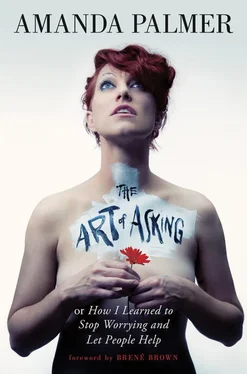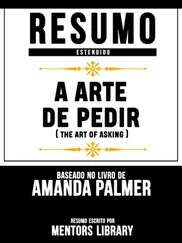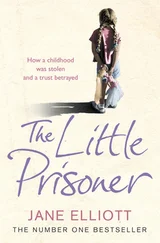Ask?
Exactly. To ask. So simple. Your talk unlocked something really profound for me. Why the hell do we find it so hard to ask, especially if others are so willing to give? So, thank you. Thank you so much. Such a gift you gave .
I gave her a hug.
And she was just the first.
Two days later, the talk was posted to the TED site and YouTube. Within a day it had 100,000 views. Then a million. Then, a year later, eight million. It wasn’t the view counts that astounded me: it was the stories that came with them, whether in online comments or from people who would stop me in the street and ask to share a moment, not because they knew my music, but because they recognized me from seeing the talk online.
The nurses, the newspaper editors, the chemical engineers, the yoga teachers, and the truck drivers who felt like I’d been speaking straight to them. The architects and the nonprofit coordinators and the freelance photographers who told me that they’d “always had a hard time asking.” A lot of them held me, hugged me, thanked me, cried.
My talk had resonated way beyond its intended audience of sheepish indie rockers who found it impossible to ask for five bucks on Kickstarter without putting a bag over their heads.
I held everybody’s hands, listened to their stories. The small-business owners, solar-panel designers, school librarians, wedding planners, foreign-aid workers…
One thing was clear: these people weren’t scared musicians. They were just… a bunch of people.
I’d apparently hit a nerve. But WHAT nerve, exactly?
I didn’t have a truly good answer for that until I thought back to Neil’s house, to the night before our wedding party.
• • •
A few years before this all happened, I met Neil Gaiman.
Neil’s famous, for a writer. He’s famous for an anyone.
For years, Neil and I had chased each other around the globe in the cracks of our schedules, me on the Endless Road of Rock and Roll, him on the parallel road of Touring Writer, falling in love diagonally and at varying speed, before finally eloping in our friends’ living room because we couldn’t handle the stress of a giant wedding.
We didn’t want to disrespect our families, though, so we promised them that we would throw a big, official family wedding party a few months later. We decided to do it in the UK, where the bulk of them live. (Neil is British, and so are a lot of my cousins.) Furthermore, the setting was magic: Neil owned a house on a teeny island in Scotland, which was coincidentally the birthplace of my maternal grandmother. It is a windswept, breathtaking-but-desolate grassy rock from which my ancestors fled in poverty-stricken terror in the early 1900s, seeking a brighter, less-breathtaking-but-less-desolate future overseas in the promising neighborhoods of the Bronx.
The night before the wedding party, Neil and I bedded down early to get a full night’s sleep, anticipating an epic day of party organizing, eating, drinking, and nervously introducing two hundred family members to one another. Neil’s three grown-up kids were staying in the house with us, along with Neil’s mother and an assortment of Gaiman relatives. They were all snuggled away in their beds across the hall, up the stairs, a few stray young cousins roughing it in tents on the back lawn.
And on the second floor of the house, while Neil slept beside me, I was having a full-blown panic attack.
Somewhere down there I suppose I was freaking out about getting married, full stop. It was feeling very real all of sudden, with all the family around. What was I doing? Who was this guy?
But mostly, I was freaking out about money.
My Kickstarter was about to launch and I was pretty confident it would bring in plenty of cash—I’d crunched the numbers—but I wasn’t on tour, I was in northern Scotland, throwing a wedding party and putting a new band together, earning nothing. I’d just had a talk with my accountant, who had informed me that I wasn’t going to have enough money to cover my office staff, band, road crew, and regular monthly expenses unless I dropped everything and went back on the road immediately—or unless I took out a loan to bridge the gap for a few months before the Kickstarter and new touring checks arrived.
This wasn’t an unfamiliar situation. To the recurring dismay of my managers, I’d already spent most of my adult life putting all of my business profits straight back into the next recording or art project once I had recovered my costs. In the course of my rocking-and-rolling career, I’d been rich, poor, and in-between… and never paid much attention to the running tally as long as I wasn’t flat broke, which occasionally happened due to an unforeseen tax bill or the unexpected tanking of a touring show. And that was never the end of the world: I’d borrow money to get through a tight spot from friends or family and promptly pay it back when the next check came in.
I was an expert at riding that line and asking for help when I needed it, and, far from feeling ashamed of it, I prided myself on my spotless interpersonal credit history. I also took comfort in the fact that a lot of my musician friends (and business friends, for that matter) went through similar cycles of feast and famine. In short, it always worked out.
Only this time, there was a different problem. The problem was that Neil wanted to loan me the money.
And I wouldn’t take the help.
We were married .
And I still couldn’t take it.
Everybody thought I was weird not to take it.
But I still couldn’t take it.
I’d been earning my own salary as a working musician for over a decade, had my own dedicated employees and office, paid my own bills, could get out of any bind on my own, and had always been financially independent from any person I was sleeping with. Not only that, I was celebrated for being an unshaven feminist icon, a DIY queen, the one who loudly left her label and started her own business. The idea of people seeing me taking help from my husband was… cringe-y. But I dealt, using humor. Neil would usually pick up the tab at nice restaurants, and we’d simply make light of it.
Totally fine with me , I’d joke. You’re richer .
Then I’d make sure to pay for breakfast and the cab fare to the airport the next morning. It gave me a deep sense of comfort knowing that even if we shared some expenses here and there, I didn’t need his money.
I knew the current gap I had to cover was a small one, I knew I was about to release my giant new crowdfunded record, I knew I was due to go back on tour, and everything logically dictated that this nice guy—to whom I was married—could loan me the money. And it was no big deal.
But I just. Couldn’t. Do. It.
I’d chatted about this with Alina and Josh over coffee a few weeks before the wedding party. They were true intimates I’d gone to high school with, at whose own wedding I’d been the best man (our mutual friend Eugene had been the maid of honor) and we’d been sharing our personal dramas for years, usually while I was crashing on ever-nicer couches in their apartments as they moved from Hoboken to Brooklyn to Manhattan. We were taking turns bouncing their newborn baby, Zoe, on our laps, I had just told them that I didn’t want to use any of Neil’s money to cover my upcoming cash shortage, and they were looking at me like I was an idiot.
But that’s so weird , Alina said. She’s a songwriter and a published author. My situation wasn’t foreign to her. You guys are married .
So what? I squirmed. I just don’t feel comfortable doing it. I don’t know. Maybe I’m too afraid that my friends will judge me .
Читать дальше












